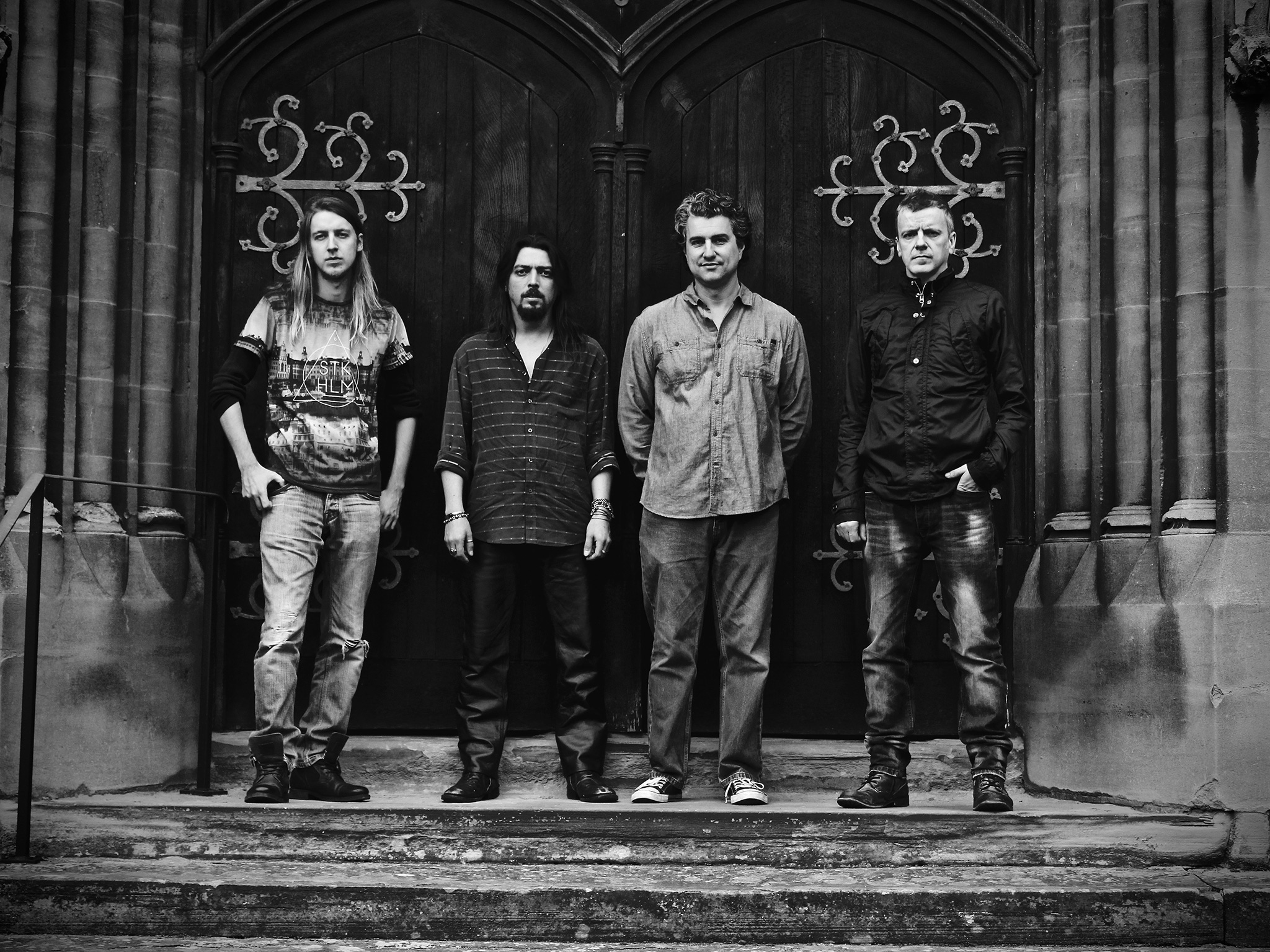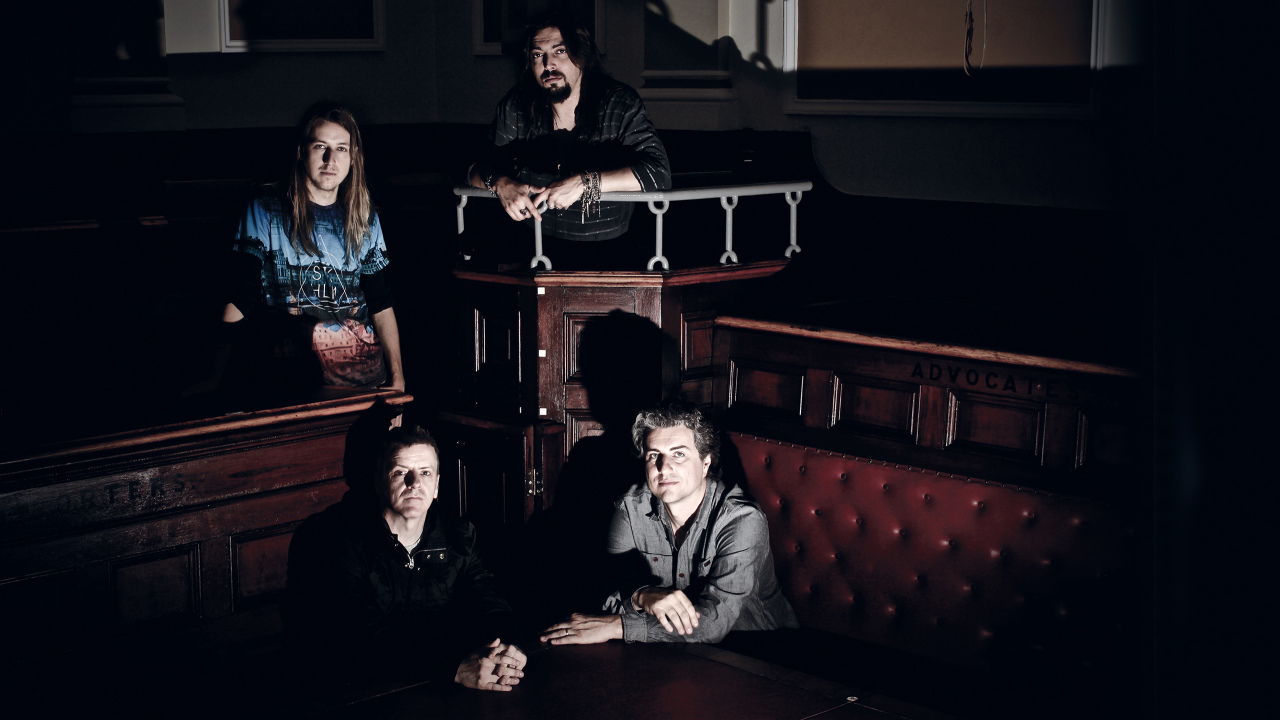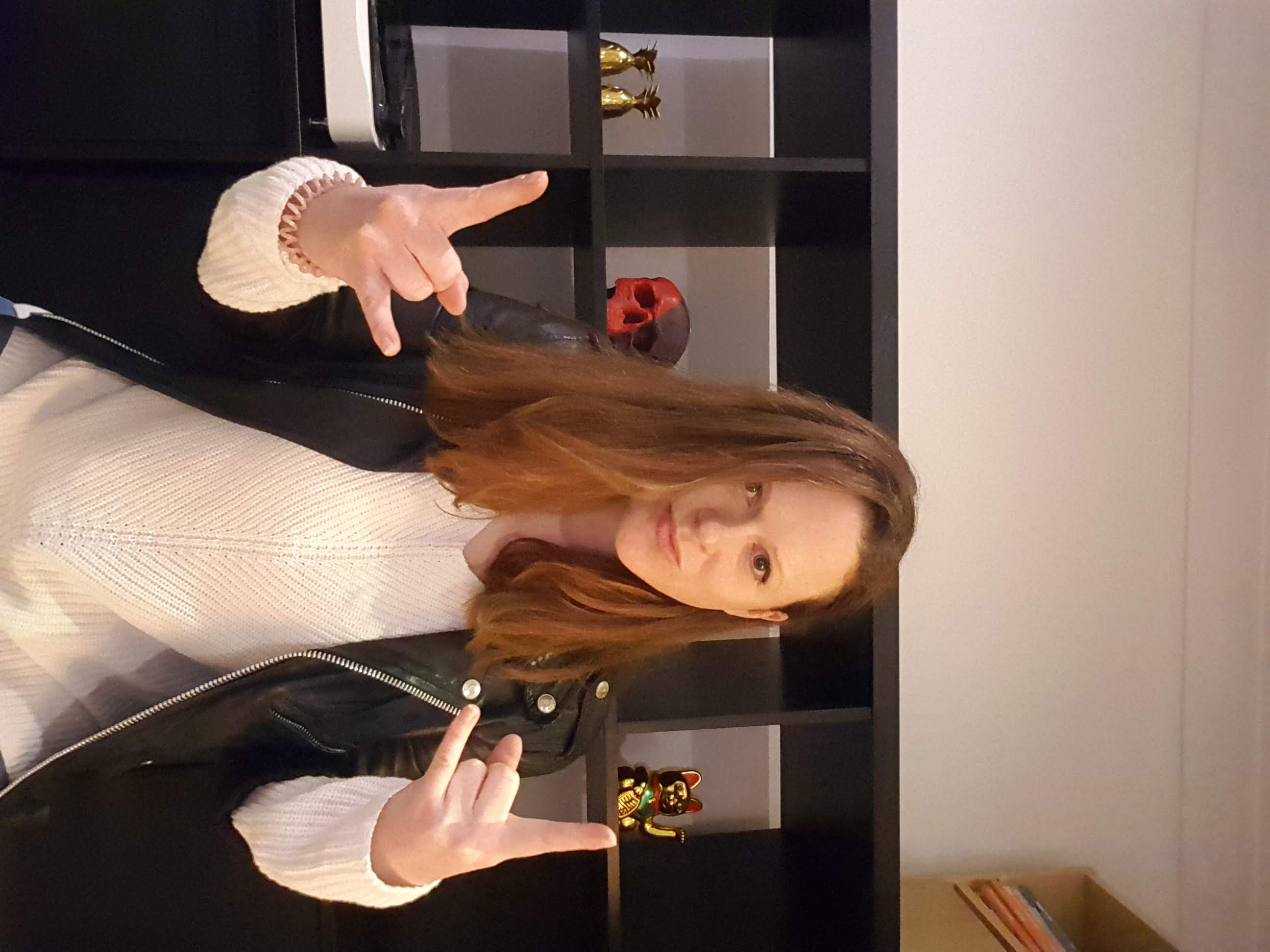In 2008, Andy Edwards flicked the dimmer switch on his involvement in Frost*.
Starting a family had a lot to do with it, but he’d also become disillusioned with the gruelling tour schedules and the synthetic process of recording music on computers. It wasn’t that he’d fallen out love with music – he continued to work behind the scenes, and took up a new position as Head of Music at Kidderminster College –but the thirst to create music as part of a band wasn’t there like it had been with Frost* and IQ. That was until Magenta’s Rob Reed got in touch.
“Rob was good at badgering me,” says Edwards. “He’d say, ‘Why don’t you want to do prog again?’ and I’d say, ‘I like the good old days where you go into a room with people and play.’”
You can have as much widdle and be as clever as you want but it’s the song that matters.
And that was the start of Kiama, the latest supergroup to emerge from prog’s fertile musical scene. Featuring Reed, Edwards, Luke Machin from Maschine, and Dylan Thompson, formerly of The Reasoning, Kiama is a tantalising proposition combining the musical expertise from some of modern prog’s most loved groups. The band have been three years in the making but their first album, Sign Of IV, is finally out, and it’s prog… but not as you know it.
“It’s not Frost*, it’s not IQ, it’s not Magenta, Maschine or The Reasoning. It doesn’t sound like any of those bands,” says Edwards.
But wait! How can a band that on paper sounds as prog as you like not resemble any of its components?
It turned out that Edwards’ vision of an organic recording process with just four blokes in a room making eye contact and laying stuff down in one take was one that Reed shared. Together, they set about laying the blueprint for a band that would take their influence not necessarily from the prog greats but from the classic rock bands that inspired the genre.
“When me and Andy sat down three years ago and said, ‘What are we going to do with this project?’ it was all about the songs,” Reed explains. “So instead of going for Yes and Genesis and ELP, we wanted Deep Purple and Rainbow and Queen and Gary Moore – bands that dabbled in prog and did longer songs. You can have as much widdle and be as clever as you want but it’s the song that matters.”
First impressions of Sign Of IV are good. It’s an album of classic riffing, catchy tunes and gospel euphoria that imbibes the feel-good vibe of 70s rock’n’roll and nods to an array of influences, from Led Zeppelin and Muse to Jeff Buckley and Soundgarden.

It took Reed and Edwards a while to secure Machin and Thompson after a long time going through singers and guitarists who either didn’t fit or couldn’t commit. But their recruits couldn’t be more perfect for Kiama– Machin, the soulfully charged electric wizard, and Thompson, The Reasoning’s underdog, who was born to be a frontman.
“I’ve know Dylan for about 10 or 15 years,” says Reed. “I introduced him to Matt [Cohen, bassist] because he was on one of these government schemes that pay unemployed youngsters to get into music. I heard his voice and said, ‘One day you’ll be fronting a band,’ and it’s really bizarre because it’s come full circle. He was wasted in The Reasoning.”
Sign Of IV was recorded in four days at Peter Gabriel’s studio Real World. It’s funny to imagine talented musicians being nervous about recording but that’s what it was like. The first time they all got together was in that room and the moment they hit ‘Record’, they knew they had to nail it. Kiama had one rule – no cutting and pasting, no Pro Tools, just organic, one-take playing, just like the old days. The ‘prog’ epics from some of their favourite bands from the early 70s provided the inspiration – Led Zeppelin’s Kashmir, Rainbow’s Stargazer and Queen’s Bohemian Rhapsody – and more recently, Steven Wilson.
“When I heard The Raven That Refused To Sing, it got me excited about prog again,” Edwards says. “It sounded like really old prog – electric piano, organs, everyone playing in the same room at the same time.
“On a computer you can cut bits and move then around, but a listener wants to hear emotion. This is why Kiama was formed, to get that feeling that we haven’t tried to bump up in the mix. Musicians who do that strike me as lacking confidence.
“What we weren’t ready for was how much we gelled as a band,” Edwards adds. “Once Dylan and Luke were in, I don’t really remember the songs being written – it just seemed to happen.”
This comment resonates. Sometimes it’s easy to forget that bands are fans too, and speaking to Reed and Edwards, you sense that Kiama represent more than a musical project. It’s also an opportunity for musicians to play with others that they admire.
“I think Luke is one of the best guitarists in the prog scene at the moment and Dylan is one of the best singer/songwriters,” enthuses Edwards.
It’s like it was meant to be – even down to the band name. They tussled over it for ages, throwing in names like Zen Riot and The Flames, but they settled on Kiama, an adaptation of the ELO song Kuiama. A while later they got an email from the Kiama Independent in Australia, inviting them for an interview. Unbeknown to the band, Kiama is a town in New South Wales, named after the aboriginal word meaning ‘the sound the sea makes’.
“I thought, ‘That’s a really cool name!’” says Edwards.
Kiama are hitting the road, with a support slot booked in with Frost* this summer. And knowing that Edwards has played with Robert Plant, there’s one question left to ask: has the Zeppelin man heard Kiama? “I get to chat to Robert quite a bit but he doesn’t know about Kiama… yet!”
Sign Of IV is available now on Tigermoth. See Kiama’s Facebook page for more information.

